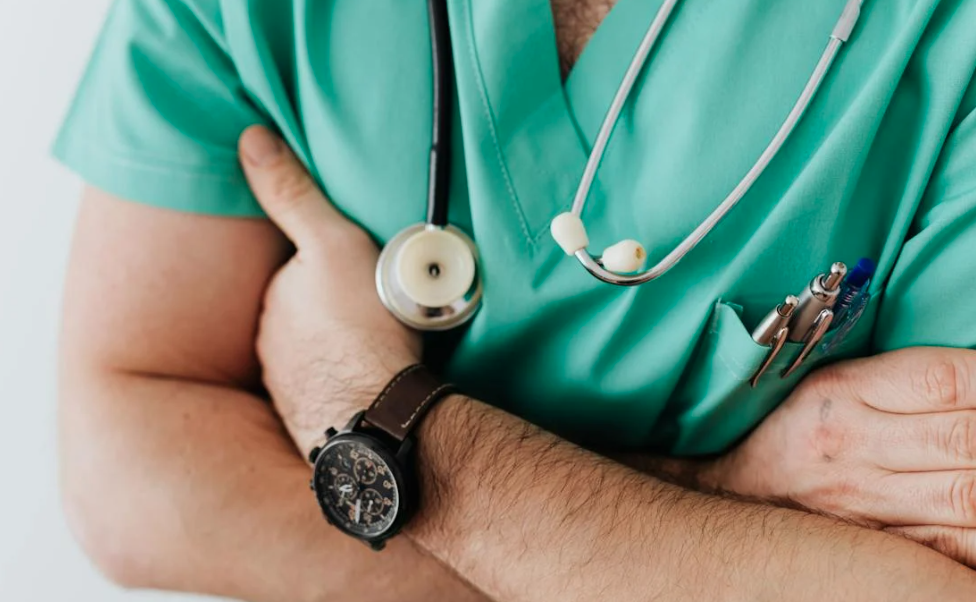- Monday to Sunday 08:00 - 20:00
- +353 (0)1 267 8011
- info@healthcareabroad.ie
Bunion Surgery
Bunion surgery, or bunionectomy, is a procedure aimed at realigning the toe joint and relieving pain

Preparing for Your Bunion Surgery Journey
Embarking on the path to bunion surgery through Healthcare Abroad involves a meticulous and supportive process designed to ensure your comfort and peace of mind. Here are the essential steps to guide you before you travel:
- Identification of Treatment Need: Your journey commences with your General Practitioner (GP) or consultant identifying the need for bunion surgery. This initial step ensures a clear understanding of your medical requirements.
- Contacting Healthcare Abroad: Once the need for treatment is established, you or your GP initiates contact with Healthcare Abroad. This pivotal step marks the beginning of the process to facilitate your bunion surgery in an EU country under the Cross Border Directive.
- Referral and Diagnostic Coordination: The Healthcare Abroad team collaborates with your GP to organize a referral letter and any necessary diagnostic tests. This collaborative effort ensures that all required information is shared with the chosen hospital abroad.
- Hospital and Surgeon Matching:Leveraging our extensive network, the Healthcare Abroad team meticulously matches a hospital and surgeon that aligns with your specific requirements for bunion surgery.
Financial Assistance:Should you require financial support, Healthcare Abroad assists in organizing your finances through Irish credit unions, ensuring a seamless and stress-free process tailored to your needs.

- Surgery Planning and Documentation:The team liaises with the chosen hospital, arranging surgery dates and submitting your files for review. This careful coordination streamlines the pre-operative preparations for your bunion surgery.
- Healthcare Plan Confirmation:Once your comprehensive healthcare plan for bunion surgery is agreed upon, Healthcare Abroad confirms your travel dates and healthcare schedule with the hospital team, providing clarity and confidence.
- Pre-Travel Preparation:With all arrangements in place, you are now ready to embark on your journey. Upon arrival at the hospital, an out-patient appointment with your consultant is scheduled for the day before the bunion surgery, ensuring any pre-operative concerns are addressed.
- Post-Treatment Discharge:Upon discharge, Healthcare Abroad finalizes all necessary paperwork on your behalf and submits it to the Health Service Executive (HSE). This meticulous process ensures a timely refund and minimizes post-surgery administrative burdens.
- Communication with Local Medical Records:To maintain continuity of care, your GP receives a comprehensive report from the hospital regarding the bunion surgery. This report serves to update your local medical records, ensuring a seamless transition back into your local healthcare system.
With these carefully orchestrated steps, Healthcare Abroad is committed to providing you with a supportive and stress-free experience as you prepare for your bunion surgery abroad.

What are Bunions?
Bunions are bony bumps that form at the base of the big toe, often causing pain, inflammation, and difficulty in wearing certain footwear. Genetics, improper footwear, and joint stress contribute to their development. When conservative treatments fail to provide relief, surgical intervention becomes a viable option.

Pain-Free Mobility
In the pursuit of pain-free mobility and enhanced quality of life, many individuals facing the discomfort of bunions are seeking efficient solutions beyond their local healthcare systems. For Irish patients looking to sidestep lengthy hospital waiting lists, Healthcare Abroad offers an alternative under the EU Cross-Border Directive. Let’s delve into the specifics of bunion surgery, exploring the procedure, benefits, and how Healthcare Abroad facilitates a seamless experience.
Understanding Bunions
Bunions are bony bumps that form at the base of the big toe, often causing pain, inflammation, and difficulty in wearing certain footwear. Genetics, improper footwear, and joint stress contribute to their development. When conservative treatments fail to provide relief, surgical intervention becomes a viable option.
How to Identify Bunion
- A bunion is a hard lump on the side of your feet, by your big toe.
- Your big toe may point towards your other toes.
- The skin over the lump is usually hard, red or swollen.
Bunion Surgery - An Overview
Bunion surgery, or bunionectomy, is a procedure aimed at realigning the toe joint and relieving pain. Common types of bunion surgery include osteotomy (bone cut and realignment), arthrodesis (joint fusion), and exostectomy (removal of the bump). The choice of surgery depends on the severity of the bunion and the patient’s overall health.
It can take a while to recover from surgery.
You’ll usually need to:
- Stay off your feet as much as possible for at least 2 weeks
- Avoid driving for 6 to 8 weeks
- Stay off work for 6 to 12 weeks
- Avoid sports for up to 6 months
After surgery:
- Your toes might be weaker or stiffer than before
- Your toes may not be perfectly straight
- Your feet might still be slightly wide, so you may still need wide-fitting shoes
- Bunions sometimes come back after surgery.

Benefits of Bunion Surgery
In the pursuit of pain-free mobility and enhanced quality of life, many individuals facing the discomfort of bunions turn to surgery in order to benefit from:
- Pain Alleviation: Bunion surgery addresses the root cause of pain, providing long-term relief.
- Improved Mobility: Correcting the misalignment enhances the foot’s functionality and reduces discomfort during movement.
- Prevention of Progression: Surgery prevents the bunion from worsening over time, preserving joint health.
Healthcare Abroad and the EU Cross-Border Directive
Under the EU Cross-Border Directive, Irish patients can opt for bunion surgery abroad, bypassing waiting lists and accessing timely treatment. Healthcare Abroad streamlines the entire process, from initial consultation to post-operative care, ensuring a smooth healthcare journey.

Post-Surgery Care: Nurturing Your recovery at home
Your journey towards improved mobility and well-being doesn’t conclude when you return home after your bunion surgery. Proper care during the post-surgery period is crucial for ensuring a smooth and lasting recovery. Follow these guidelines to make the most of your rehabilitation and enjoy the benefits of your new knee:
- Follow-Up Appointments with Your Local Healthcare Provider: Upon your return, schedule follow-up appointments with your local General Practitioner (GP) or consultant. Share details of your bunion surgery and provide any documentation received from the overseas hospital to keep your local medical records up-to-date.
- Physiotherapy and Rehabilitation: Engage in the recommended physiotherapy exercises outlined by the healthcare professionals abroad. These exercises are crucial for enhancing the strength and flexibility of your foot, promoting optimal recovery. Arrange for ongoing physiotherapy sessions locally to support your rehabilitation.
- Pain Management and Medication: Adhere to any prescribed pain management plans and medications provided by your overseas healthcare team. Communicate with your local healthcare provider if adjustments or refills are required, ensuring continuous comfort during your recovery.
- Wound Care and Dressing Changes: If your surgical site requires ongoing care, follow the instructions provided by the overseas hospital for wound care and dressing changes. Keep in touch with your local healthcare provider for any necessary adjustments or additional support in managing the healing process.

- Monitoring for Complications: Stay vigilant for any signs of complications such as infection, swelling, or unusual discomfort. Report any concerns promptly to your local healthcare provider, who can assess and address issues as needed.
- Gradual Return to Regular Activities: Ease back into your regular activities gradually, following the guidance provided by both your overseas healthcare team and local healthcare provider. Striking a balance between rest and activity is essential for a successful recovery.
- Nutrition and Hydration: Maintain a healthy and balanced diet to support the healing process. Stay hydrated, and consider consulting with a nutritionist for personalized dietary recommendations that promote optimal recovery.
- Emotional and Mental Well-being: Recovery is not only physical but also emotional. Stay connected with friends, family, or support groups to share your experiences and feelings. If needed, consider seeking guidance from a mental health professional to address any emotional aspects of your recovery.
- Communication with Healthcare Abroad: Maintain open communication with Healthcare Abroad for any post-operative queries or concerns. Our team is here to provide ongoing support and assistance as you navigate your recovery back home.
- Feedback and Testimonials: Your feedback is invaluable to us. Share your post-surgery experience with Healthcare Abroad, helping us continually improve our services and supporting future patients on their healthcare journeys.
By prioritising these post-surgery care guidelines, you actively contribute to your successful recovery, and Healthcare Abroad remains dedicated to supporting you every step of the way.

Healthcare Abroad
View all Patient Stories
We've helped thousands of Irish patients like you. Those who are stuck on waiting lists in Ireland, travelled abroad for treatment - cared for by us.
